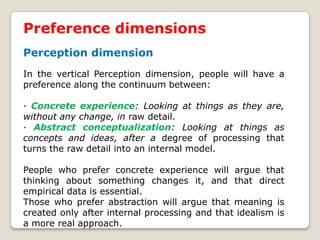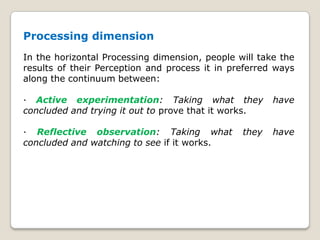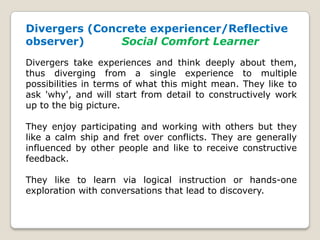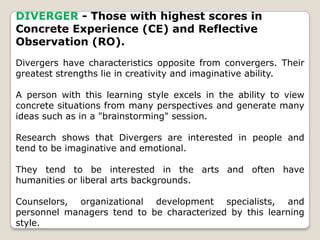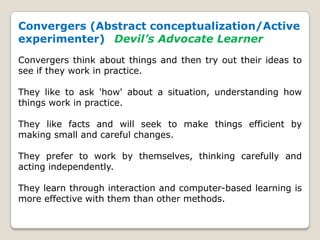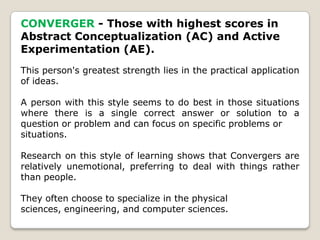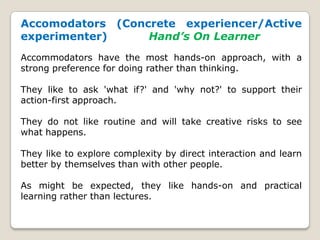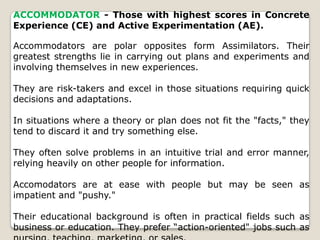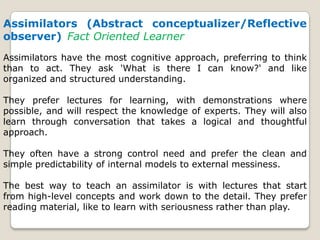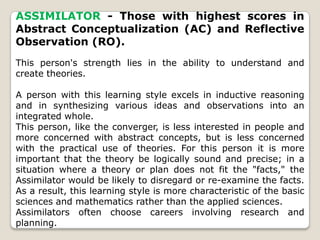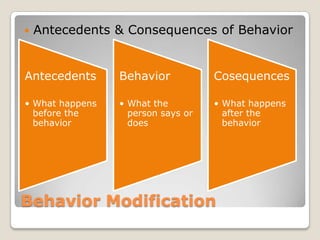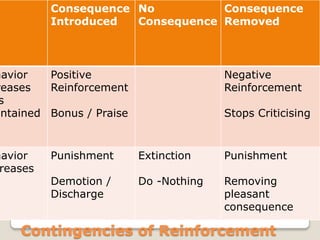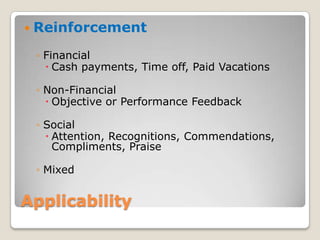This document discusses various theories and models of learning including:
1. Classical conditioning which associates an unconditioned stimulus with a conditioned stimulus.
2. Operant conditioning where behavior is modified through reinforcement or punishment.
3. Cognitive learning theories which focus on mental processes like attention, memory, and problem-solving.
4. Social learning theories that emphasize learning through observation and modeling behaviors.
It also describes different learning styles including divergers, convergers, accommodators, and assimilators based on how people perceive and process information. Reinforcement and behavior modification aim to increase desired behaviors through consequences like rewards or praise.
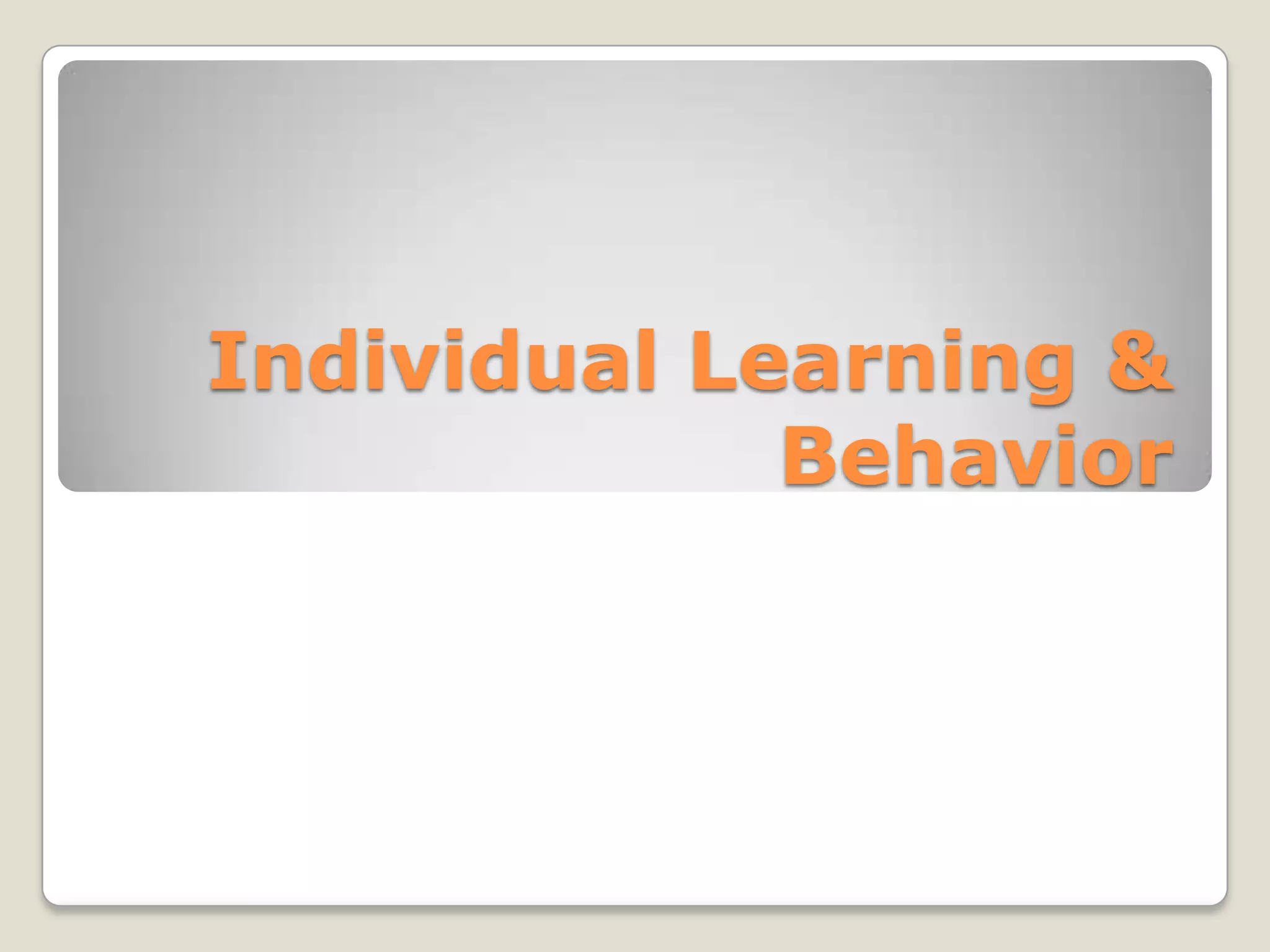
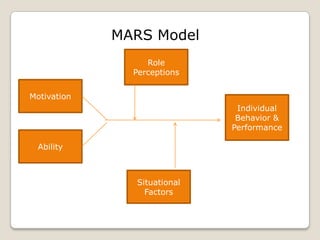
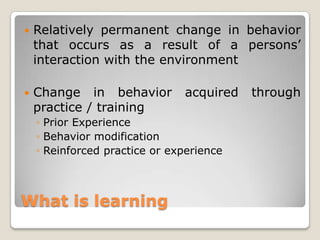
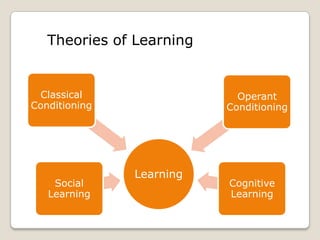
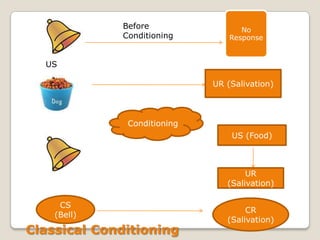
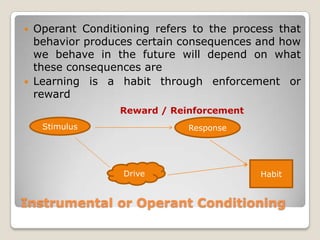
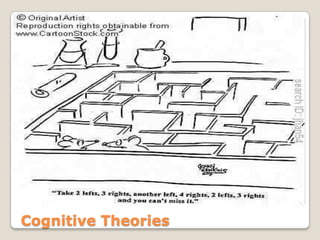
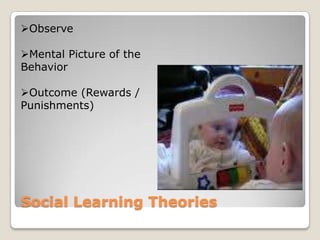
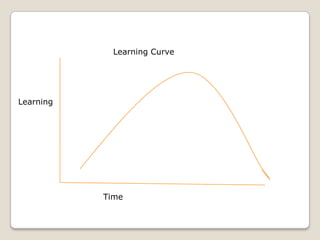
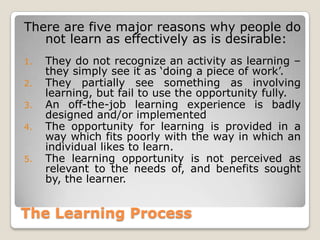
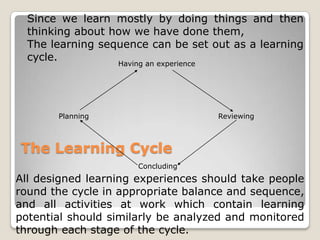
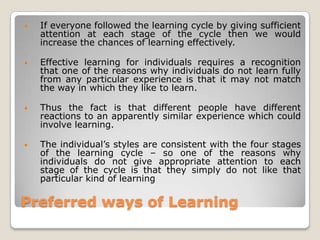

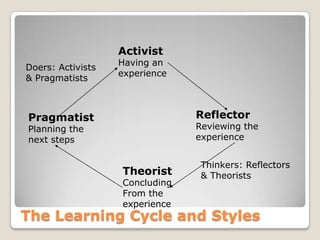
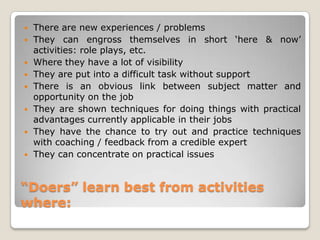
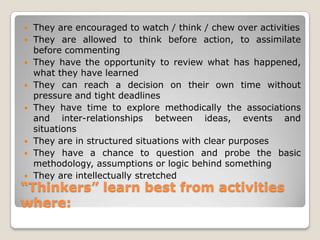
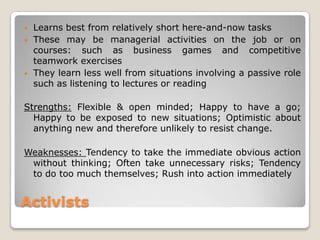
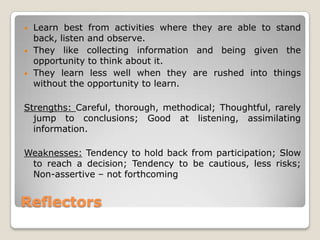
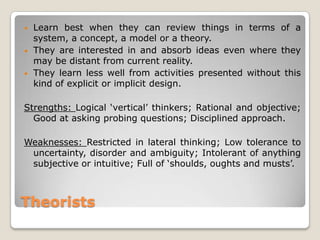
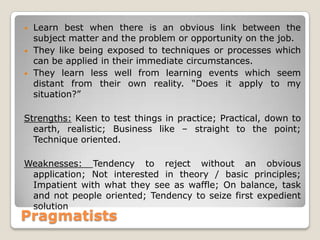
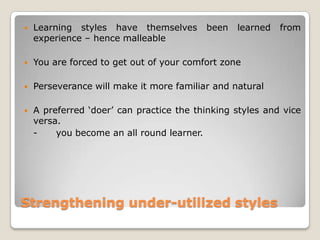
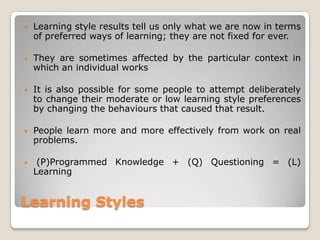
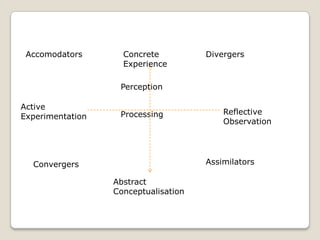
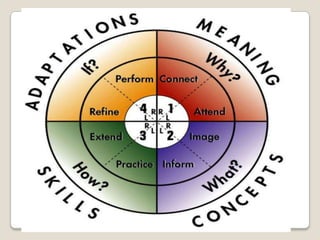
![David Kolb: Learning Styles Inventory
CONCRETE EXPERIENTIAL
ABSTRACT CONCEPTUAL
ACTIVE REFLECTIVE
EXPERIMENTATION OBSERVER
„WHY‟ QUADRANT [35%]
Learns by seeking out meaning
Connects to values & emotions
Seeks outcomes & interaction
Build rapport
Sell the idea
Trainer role: MOTIVATOR
„WHAT‟ QUADRANT [22%]
Learns by thinking through ideas
Seeks facts and is impressed by research
Wants to know what the experts thinks
Reflects on ideas
Usefulness generally irrelevant
Information junkies
„Teach it like it is ….‟
Trainer role: TEACHER
„HOW‟ QUADRANT [18%]
Learns by testing theories
Needs to know how things work
Seeks usability
Wants exercises and feedback
„Give me an explanation!‟
‘What’s in it for me?’
‘What are the facts?’‘How does this work?’
Trainer role: COACH/FACILITATOR
„WHAT IF‟ QUADRANT [25%]
How is it useful?
Learns by trial and error
Seeks hidden possibilities
Welcomes self discovery
How can I make money out of this?
‘Where can I apply this?’
Trainer role: COLLEAGUE](https://image.slidesharecdn.com/chapter2individuallearningandbehaviour-130929213955-phpapp01/85/Chapter-2-individual-learning-and-behaviour-25-320.jpg)
